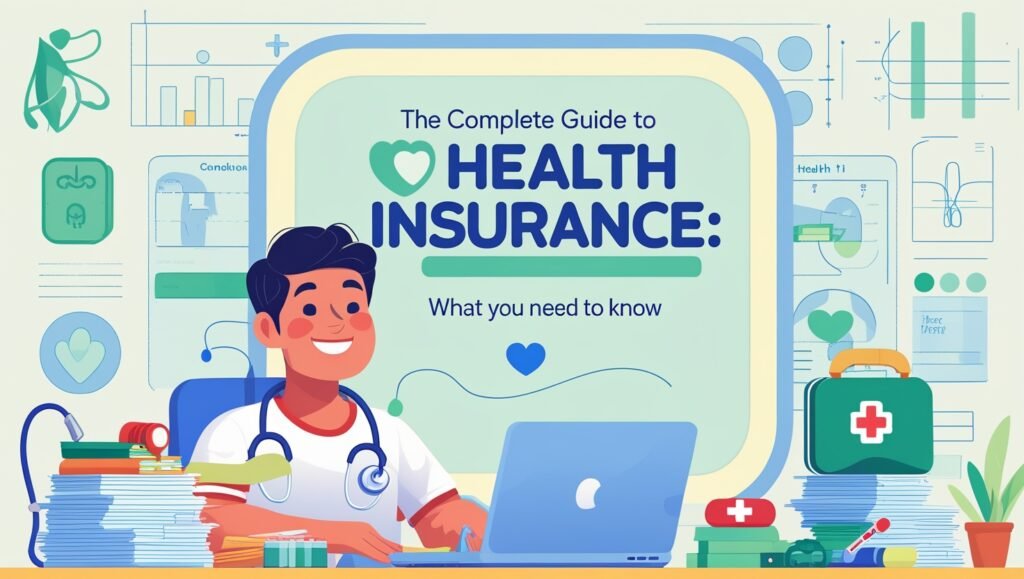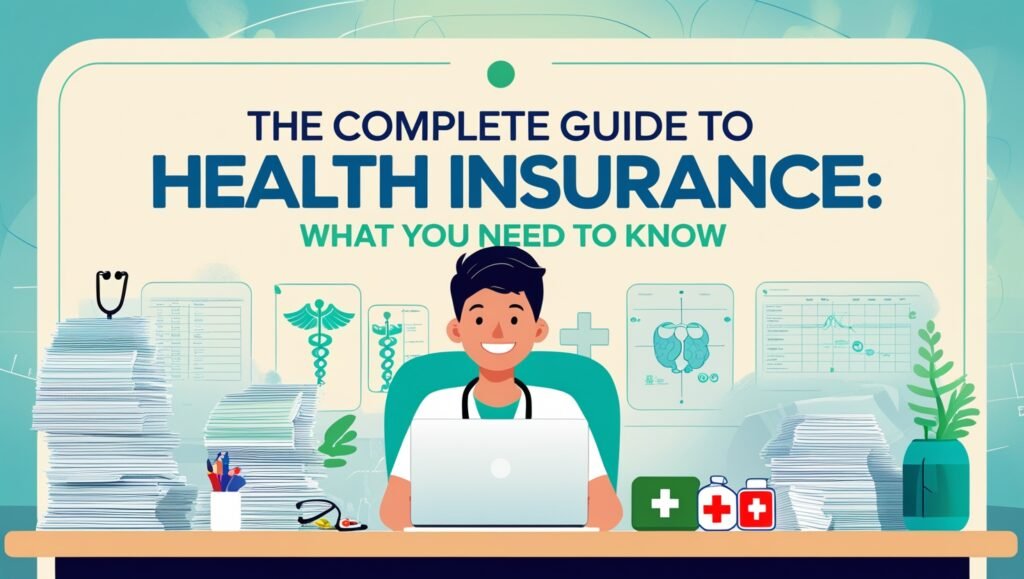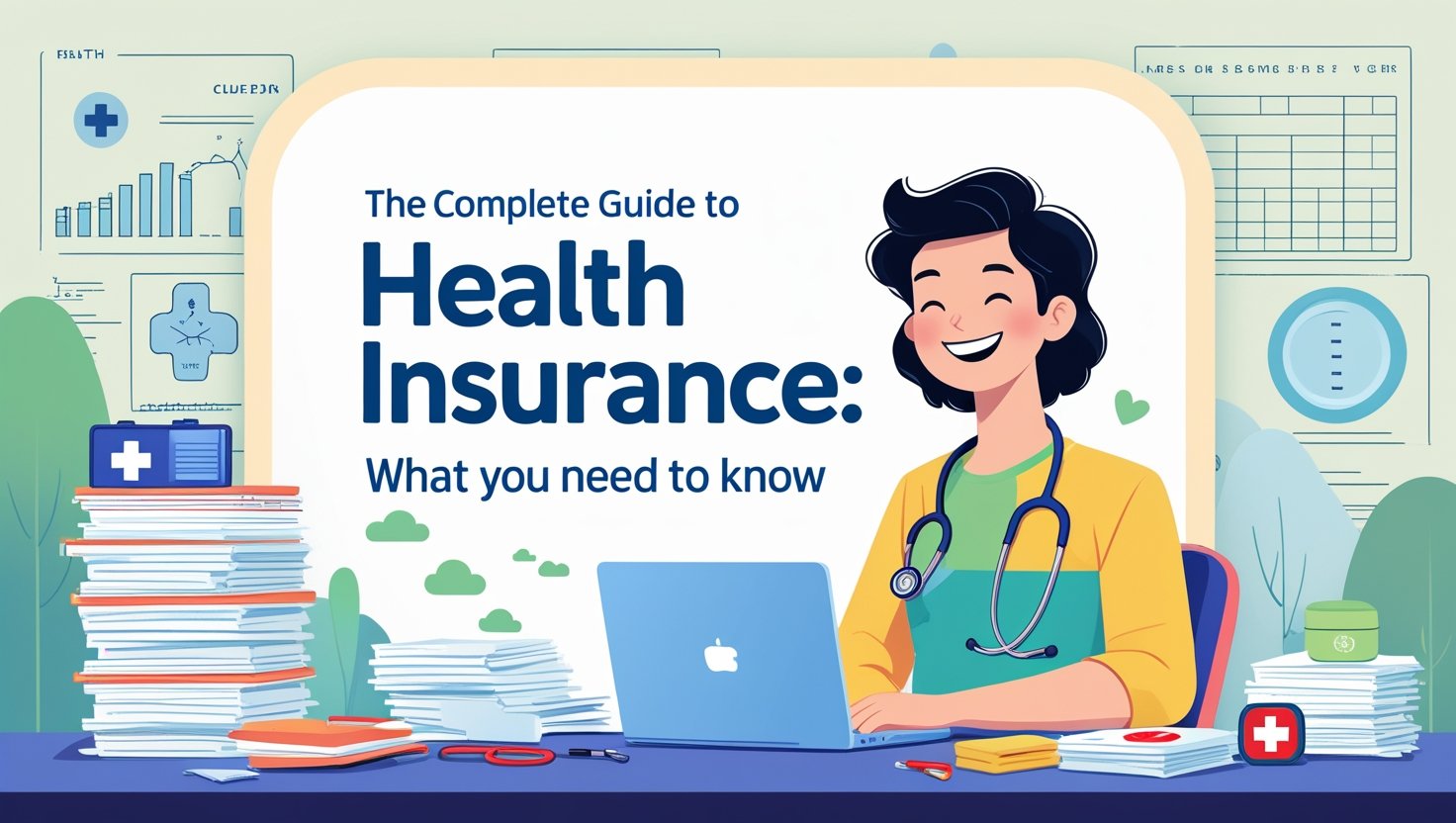Introduction
Why Health Insurance Matters
Let’s be honest: falling sick or getting into a medical emergency is never planned. But paying for it? That can leave your savings in ruins if you’re not prepared. That’s where health insurance steps in. It’s like your financial shield against rising medical bills.
The Rising Costs of Healthcare
From routine checkups to major surgeries, healthcare costs are going up globally—and Pakistan is no exception. A single hospitalization can cost lakhs of rupees. Without insurance, that’s coming straight out of your pocket.
Role of chimehub.site in Spreading Awareness
At chimehub.site, we believe every individual has the right to understand and access health insurance. That’s why we publish easy, friendly, and actionable guides—just like this one—to help you stay protected.
What is Health Insurance?
Basic Definition
Health insurance is a contract where you pay a premium, and in return, the insurer pays for your medical expenses—according to the terms in your policy.
How it Works
Here’s a simple breakdown:
- You buy a health insurance policy.
- You pay monthly/yearly premiums.
- When you get sick or injured, your insurance either pays the hospital directly (cashless) or reimburses you later (reimbursement).
Key Terms You Should Know
- Premium: What you pay to keep your policy active.
- Deductible: Amount you pay before your insurance kicks in.
- Co-pay: Your share of the bill, even after insurance pays.
- Coverage: The maximum the insurer will pay for certain conditions.

Types of Health Insurance Plans
Individual Health Insurance
This plan covers a single person. Ideal for those living alone or just starting out in their careers.
Family Health Insurance
A single policy that covers you, your spouse, children, and sometimes even parents. Cost-effective and convenient.
Group/Employer Health Insurance
Many employers offer this benefit. It’s often cheaper and covers basic medical needs but may not include serious illnesses.
Government Health Programs (for reference)
In Pakistan, programs like Sehat Sahulat Program aim to support low-income families. But private insurance gives more flexibility and coverage.
What Does Health Insurance Cover?
Hospitalization
Room rent, surgeries, nursing, ICU, and more.
Doctor Visits
Outpatient consultations, specialist checkups, and second opinions.
Prescription Drugs
Many policies cover the cost of medicines if prescribed during treatment.
Preventive Care
Some plans include annual health checkups, vaccinations, and screenings.
Emergency Services
Ambulance charges, ER visits, and emergency surgeries are often covered.

What’s Not Covered in Most Plans
Cosmetic Procedures
Unless medically necessary (like reconstructive surgery after an accident), these are usually excluded.
Dental and Vision (in most cases)
These often require add-on plans or separate policies.
Experimental Treatments
Therapies or procedures that are not widely approved might not be covered.
Benefits of Health Insurance
Financial Security
No need to drain your savings or take loans during emergencies.
Access to Better Healthcare
Good policies give you access to top hospitals and specialists.
Peace of Mind
You focus on recovery—not the bills.
Early Detection and Prevention
Policies with free checkups encourage regular health monitoring.
How to Choose the Right Health Insurance Plan
Understand Your Needs
Are you single, married, or have a family? Any existing health issues? These affect your ideal coverage.
Compare Coverage
Don’t just compare prices—look at what each policy includes.
Check Network Hospitals and Doctors
Make sure your nearby and preferred hospitals are included.
Read the Policy Document Carefully
Yes, even the fine print. Know your waiting periods, exclusions, and claim procedures.
How to Use Health Insurance
Cashless vs Reimbursement Claims
- Cashless: Go to a network hospital and the insurer pays directly.
- Reimbursement: You pay first, submit bills, and get reimbursed later.
How to File a Claim
Inform your insurer, collect documents, and fill out the claim form. chimehub.site has a full guide for this!
Tips for Hassle-Free Claims
- Always carry your policy card.
- Know your claim limits.
- Keep all original receipts and reports.
Common Myths About Health Insurance
“It’s Only for Old People”
Health issues can strike anyone. Younger people actually get better premiums.
“It’s Too Expensive”
Basic plans are affordable—and far cheaper than a single hospitalization.
“I’m Healthy, I Don’t Need It”
That’s the best time to buy insurance! Once you’re sick, it’s harder or more expensive to get covered.

Health Insurance in Pakistan
Government Schemes
Programs like Sehat Insaf Card are steps in the right direction but have limitations.
Private Insurers
Companies like Jubilee, EFU, Adamjee, and others offer tailored plans for individuals and families.
Rising Awareness
Thanks to digital platforms like chimehub.site, people are getting smarter about health insurance.
Your Trusted Insurance Guide
Simplifying Complex Policies
We break down insurance terms, compare plans, and explain everything in everyday language.
Latest Updates on Health Plans
From price changes to new laws, we keep you in the loop.
Free Tools and Resources
Use our checklists, blogs, and comparison tools to choose wisely.
Conclusion
Health insurance isn’t just a luxury—it’s a necessity in today’s world. Medical emergencies can strike anytime, and without proper coverage, your finances can take a serious hit. But with the right plan, you get access to quality care, peace of mind, and financial stability.
At chimehub.site, we’re committed to helping you make the smartest choices. Start today—compare plans, read reviews, and protect your health and future like a pro.
FAQs
1. What is the best age to buy health insurance?
The younger, the better! Premiums are lower and you’re more likely to get approved.
2. Can I use my health insurance for any hospital?
Only if it’s a network hospital. Otherwise, you might need to file for reimbursement.
3. What happens if I miss a premium?
Your policy could lapse. Always pay on time or set up auto-debit to stay covered.
4. Is maternity covered in basic health plans?
Not always. Many plans require a waiting period or offer maternity as an add-on.
5. How does a waiting period work in health insurance?
It’s the time you must wait before certain benefits (like pre-existing conditions) are covered—usually 2–4 years.
